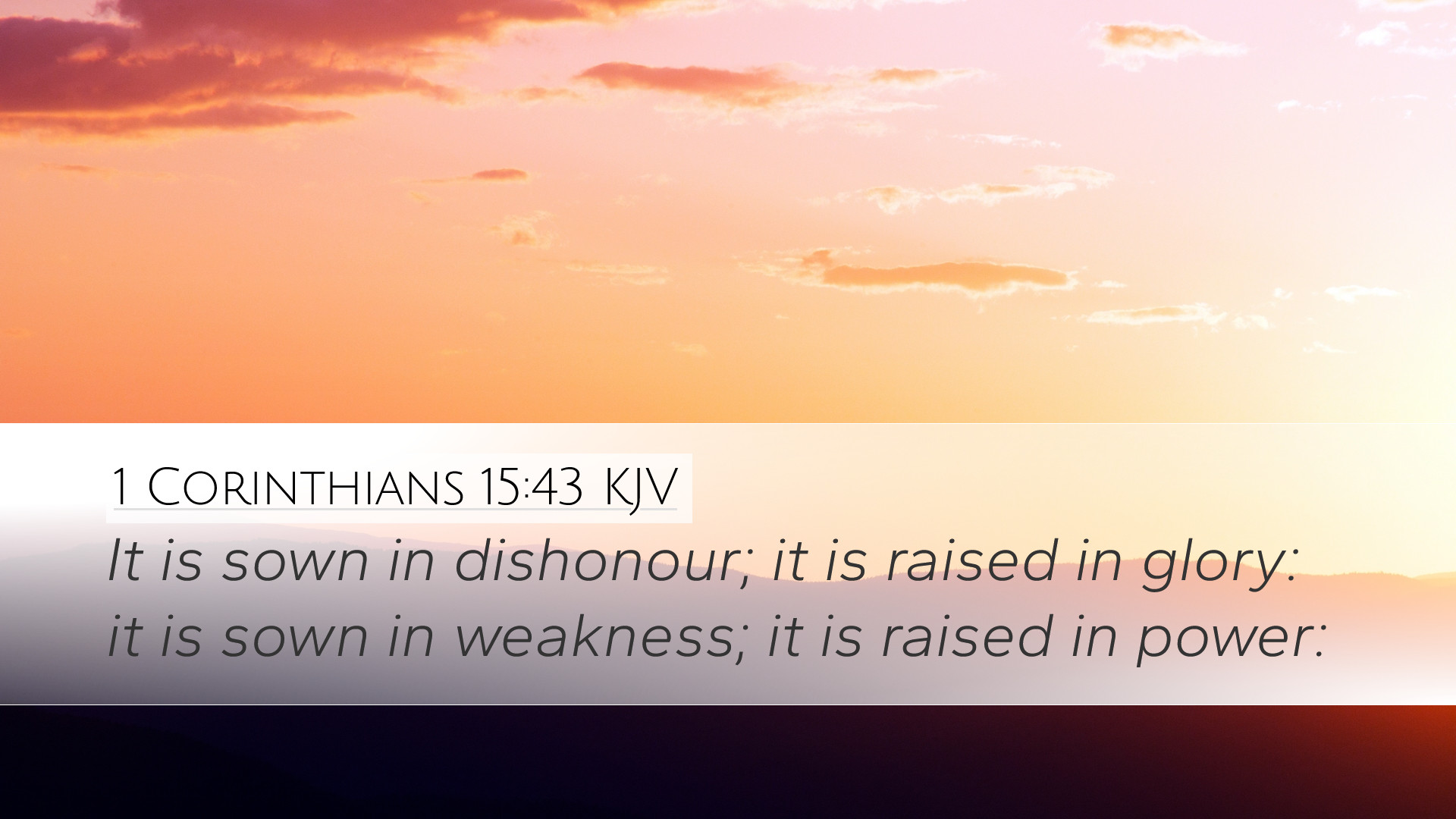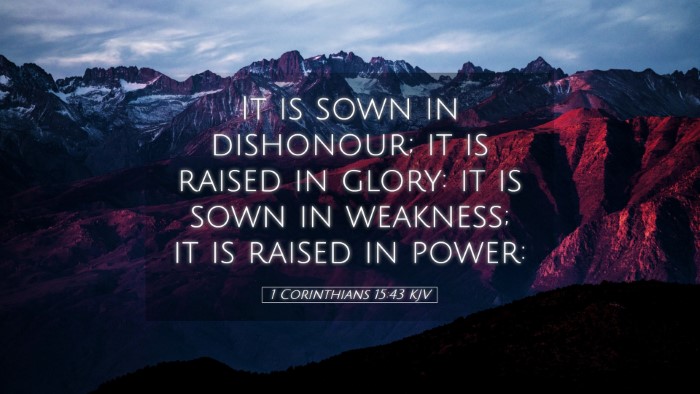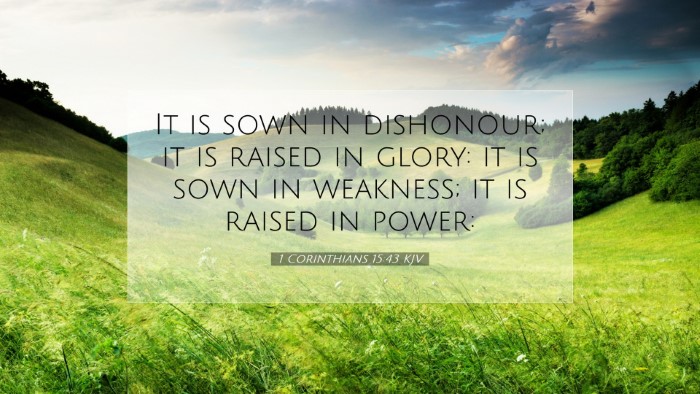Commentary on 1 Corinthians 15:43
Bible Verse: "It is sown in dishonor; it is raised in glory: it is sown in weakness; it is raised in power."
Introduction
This verse from 1 Corinthians 15:43 captures the profound transformation that takes place in the resurrection of the body. The Apostle Paul, addressing the issues concerning resurrection, presents a contrast between the natural state of the body and its glorified state after resurrection. This passage reflects deep theological truths that resonate with the Christian hope and the nature of Christ’s resurrection.
Exegesis
Paul's discourse in this chapter deals primarily with the doctrine of the resurrection, a crucial tenet of Christian faith. In Matthew Henry's Commentary, he emphasizes that the resurrection allows believers to partake in Christ’s glory. Paul provides a series of contrasts: dishonor and glory, weakness and power, to illustrate the transformative work of God in the resurrection.
1. Sown in Dishonor
In writing that the body is "sown in dishonor," Paul acknowledges the fallen nature of humanity. Albert Barnes notes that this reflects our sinful condition, where human flesh is frail and imperfect. The ‘dishonor’ that the body experiences includes its decay and mortality, pointing particularly to the suffering and sin that characterize human experience.
2. Raised in Glory
The transition from dishonor to glory signifies not only a physical transformation but also a moral and spiritual elevation. Adam Clarke highlights that the glory mentioned here refers to the exalted state of believers after resurrection, indicating they will be conformed to the image of Christ. The glorified body will be liberated from sin and decay, a hope that brings comfort to believers.
3. Sown in Weakness
Paul states that the body is "sown in weakness," which acknowledges the frailty of human life. In the commentary by Matthew Henry, it is suggested that this speaks to the vulnerability of the human body, which is subjected to ailments, aging, and ultimately death. Our abilities are limited in this natural existence.
4. Raised in Power
The phrase "raised in power" conveys the divine strength demonstrated in the resurrection. Albert Barnes comments that this power is not merely a restoration but an endowment that enables the resurrected body to exist in perfection, free from the limitations that characterized the former state. This power is akin to that which raised Christ from the dead, assuring believers of their future hope.
Theological Implications
The theological insights derived from this verse illuminate essential Christian beliefs regarding resurrection and eternal life. Here are some key implications:
- Hope in Resurrection: The transformative nature of resurrection provides believers with hope. Paul encourages the Church in Corinth to embrace the certainty of resurrection, which is fundamental to Christian faith.
- Transformation of the Body: The resurrection is not merely a continuation of life; it involves a radical transformation. This means that what is perceived as weak and dishonorable will be replaced with a glorious, powerful existence.
- The Nature of the Resurrected Body: As Clarke notes, the resurrected body will resemble Christ's own resurrection body, signifying a new order of existence birthed through divine intervention.
- Affirmation of Bodily Resurrection: Paul’s argument counters the skepticism surrounding resurrection, a pertinent issue in Corinth. He affirms corporeal resurrection sharply against philosophical ideals that dismiss the significance of the body.
Conclusion
1 Corinthians 15:43 presents profound contrasts that encapsulate the journey from weakness and dishonor to strength and glory. Collectively, the insights from public domain commentaries enhance our understanding of the Christian hope attached to resurrection. Pastors, students, and theologians will find that this verse not only reinforces the necessity of resurrection theology but also serves as an anchor for believers grappling with mortality and the promise of eternal life.


